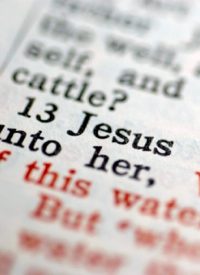
According to the Beaufort, N.C. Observer, the invocation “also made a number of references to specific tenets of Christianity, from ‘the Cross of Calvary’ to the ‘Virgin Birth’ to the ‘Gospel of the Lord Jesus Christ.’”
In the court’s two-to-one majority opinion, Judge J. Harvie Wilkinson III wrote that legislative prayer “must strive to be nondenominational so long as that is reasonably possible — it should send a signal of welcome rather than exclusion. It should not reject the tenets of other faiths in favor of just one.”
In the dissenting opinion, however, Judge Paul Niemeyer noted that the county allowed individuals of a variety of religious faiths to offer the invocation at local government meetings, so that no faith was given precedent. “I respectfully submit that we must maintain a sacred respect of each religion,” he wrote, “and when a group of citizens comes together, as does the Forsyth County Board of Commissioners, and manifests that sacred respect — allowing the prayers of each to be spoken in the religion’s own voice — we must be glad to let it be.”
However, noted Wilkinson, fully three-quarters of the prayers offered between May 2007 and December 2008 were Christian prayers, referring, variously, to “Jesus,” “Jesus Christ,” and “Savior.”
He wrote that “in order to survive constitutional scrutiny, invocations must consist of the type of nonsectarian prayers that solemnize the legislative task and seek to unite rather than divide. Sectarian prayers must not serve as the gateway to citizen participation in the affairs of local government. To have them do so runs afoul of the promise of public neutrality among faiths that resides at the heart of the First Amendment’s religion clauses.”
Constance Blackmon, one of the plaintiffs in the case, applauded the ruling, recalling that when she sat in the meeting in 2007, listening to the prayer, she felt like she was being subjected to a mini-sermon. “I am very happy with the court’s ruling today,” she said, “because this court order preserves freedom of conscience for people of all different beliefs, whether they are in the majority or the minority, by requiring our government to remain neutral in matters of religion.”
The other plaintiff, Janet Joyner, explained after the ruling: “It’s not that I’m against legislative prayer. It’s that I’m against sectarian prayer. Whenever church begins to get close to government, it can get to control government. And that is the purpose of the First Amendment, to in fact not allow the government to advance any one particular religion.”
Ayesha Khan of Americans United for Separation of Church and State, the secular group representing Blackmon and Joyner, declared after the decision: “When Americans go to government meetings, they should feel welcome regardless of their beliefs about religion.” She added that government “should represent all people — it should not advance any one religion like the county was doing here. The council decides important questions, and people come because they want to plead their case or they want to be heard about their views on an ordinance that counties may be considering.”
But attorney Mike Johnson of the Alliance Defense Fund, which represented the county in the case, noted that the ruling conflicts with similar federal cases, in which courts have decided that no conflict exists when Christian prayers are offered at government sponsored functions, as long as representatives of non-Christian faiths are offered equal opportunity to pray as well. “The idea that a legislative body would have to censor the speakers who come in on a rotational basis to offer an invocation is unprecedented,” said Johnson.
One of the county commissioners, Gloria Whisenhunt, told the Winston-Salem Journal that she would like the board to appeal the ruling to the U.S. Supreme Court. “It’s another step to take,” she said. “I think we should move forward.”
Richard Linville, chairman of the commissioners, told the paper that the board would meet soon with Johnson to decide how to proceed. “In my own mind, I never saw that we did anything that was pushing one religion over another,” he told the Journal.

